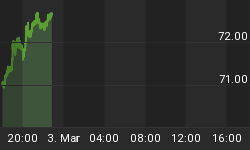The Latin term "fiat" roughly translates to "there shall be". When we refer to fiat money, we are referring to money that exists because the government declares it into existence. It is not based on production or earnings, and not backed by any commodity. It is solely based on trusting the government. Fiat money is exchanged in the economy as long as there is faith in the government that issues it.
Some are blaming the recent shakeup in the markets to "whining" or financial fear-mongering, which misses the whole point. History has shown that fiat money, or "faith-based currency" always fails, because when governments claim this power, they always behave irresponsibly.
When government has the ability to create and spend all the money it wants, priorities shift, and the concept of budgeting, as most Americans know it, loses all meaning. Hand a teenager a credit card, and tell him there is no limit and no accountability for what he spends, and the effect would be the same. You see, this problem is not unique to our government. It is a predictable outcome based on human nature, and we've seen variations of what we are experiencing now happen over and over throughout history. I didn't have a crystal ball or a fortune teller when I predicted this 3, 7, or even 30 years ago. Actions have logical consequences. The government becomes the reckless teenager with the credit card, and in the end, the taxpaying citizens get the bill. What happens after that is never pretty.
This is why our founding fathers considered, but decidedly rejected the creation of a national central bank. They understood that governments, even the best of governments, cannot control spending. Even the current administration, which promised strict fiscal responsibility, has had to increase the national debt limit by 65 percent to keep up with its spending sprees. Every dollar created and spent by government makes the dollars in your pocket worth less and less. Eventually any currency controlled by government will be debased to worthlessness, and will wipe out the savings of the citizens who put faith in that currency.
Hard currencies, on the other hand, force governments to remain in check, strictly limited to the revenues they can raise from the country's economic health. This is also an incentive for government to stay out of the way of productivity. The hyper-regulation in today's economy demonstrates that this is no longer the case. What does it matter if the economy is crippled and the tax-base eroded, if government can create whatever dollars they need to keep the special interests happy?
We have been building economic castles on the sand, and the tide is coming in. The answer is not to bring in more sand, but to move to more solid foundation.
So yes, it is true that many are complaining about our economic trouble, but our economic trouble is not caused by their complaining. Many are being forced to wake up to the predictable troubles associated with faith-based currency. As more people notice the hardships, more will lose faith.
We are long overdue for a course correction and I can only hope that this awakening translates to a solid approach to currency reform.
















